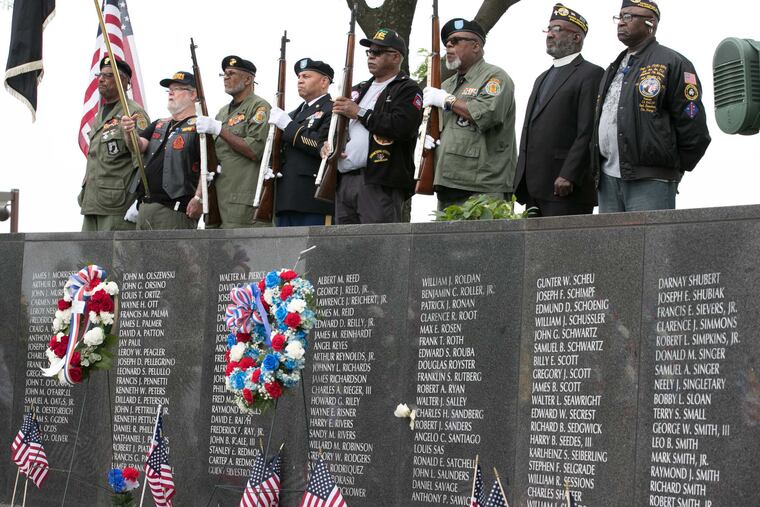Memorial Day can be traumatic for veterans | Opinion
While veterans survived the trauma of war and their injuries, many are haunted by the memories of their fallen brothers and sisters, making the holiday particularly painful.

Memorial Day can often be a lonely and troubling time for veterans and wounded warriors. While they survived the trauma of war and their injuries, many are haunted by the memories of their fallen brothers and sisters, making the holiday particularly painful.
Memorial Day, originally called “Decoration Day,” was established after the Civil War to honor the men and women who died while serving in the U.S. military. In 1971, it became a federal holiday and was marked by ceremonies, wreath-layings at grave sites, and the proud display of American flags all across the country. For many veterans, especially those who have been in combat, it is also a day that may trigger feelings of despair, knowing they survived when many of their battle buddies did not. Remembering the final minutes of an ambush when precious lives were lost.
When most Americans are heading to the beach and cooking hamburgers and hot dogs on the grill, combat-wounded soldiers and Marines often sit in silence. They relive the moments they stepped on an improvised explosive device (IED), were taking heavy fire from the enemy, or rushing to place a tourniquet on the mangled limb of a platoon mate. Fireworks sound like bombs. Heat from the grill brings back flashes of the desert’s torridity. Hearing children’s laughter seems surreal when so many were unwitting victims of war. For many combat veterans, there isn’t a day that goes by where they don’t think about the guys in their unit and others that were lost.
How they cope is a different story. After writing and interviewing more than 100 veterans and wounded warriors over the years, and being the daughter of a World War II veteran, I’ve observed that each person copes with stress and trauma in his or her own unique way. While some isolate themselves from friends and family or, tragically, take their own lives, others fare much better, dedicating their lives to serving others apart from their jobs in the military.
Marine Sgt. John Peck, for example, who was blown up twice — once in Iraq, where he lost 21 years of his memory, and again in Afghanistan, where he lost all four of his limbs, decided not to become a statistic. Once suicidal, he turned his life around by receiving a groundbreaking double arm transplant, writing a memoir, and signing up with the Worldwide Speaker’s Bureau as a motivational speaker. Army Spec. Tyler Jeffries lost both of his legs when he stepped on an IED in Afghanistan and came home a broken man. He withdrew from the world and only after persevering and never giving up got married and started a nonprofit organization to help other wounded warriors by taking fishing trips together in Florida.
Then there’s Army Sgt. Adam Keys, who not only lost both of his legs, but an arm as well, and received nearly 200 surgeries after his devastating injuries. Today, Adam has defied the odds by successfully climbing Mount Kilimanjaro, competing in marathons, and becoming a stand-up comedian.
Army Lt. Patrick Bradley, a Vietnam veteran, suffered from PTSD, but that didn’t stop him from using his skills as a wildlife and bird of prey expert, to create a nonprofit where wounded warriors can heal by taking a walk with a wounded bird of prey on their arms.
These veterans, like the millions that have come before them, and will follow, do not need our sympathy. They need something far more important — understanding.
While the service of our military men and women is laudable, Memorial Day is not a day to stand up and cheer. Rather, it is a day to sit quietly — to contemplate and remember their fallen friends. It is a day for solemn reflection.
No veterans expect their fellow Americans to give up their holiday celebrations. They just hope that people will take a moment to remember and think about the nation’s fallen veterans and never forget their service and some their ultimate sacrifice.
Dava Guerin is an author of four books about wounded warriors, veterans, and their caregivers including the latest, “Rebuilding Sergeant Peck: How I Put Body and Soul Back Together After Afghanistan.” (Skyhorse, May 2019) and “An Eagle on My Arm: How Wounded Birds of Prey Healed a Warrior’s Soul” (University Press of Kentucky, 2020).